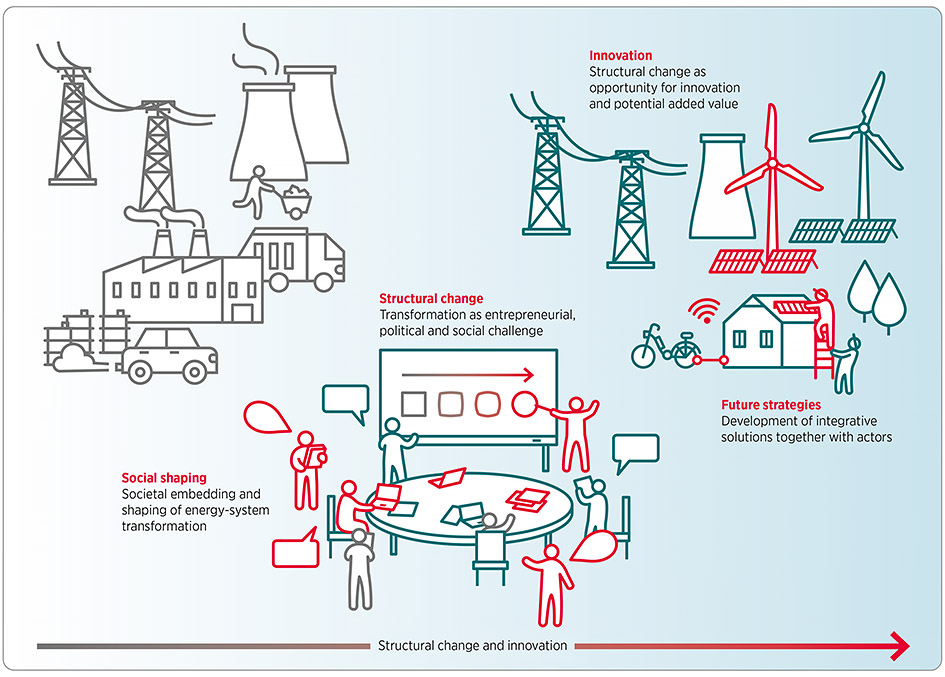Structural Changeand Innovation
The Research Unit Structural Change and Innovation shapes climate-friendly structural change, contributes to increasing the innovative capacity of industrial regions, and sees climate change and resource conservation as opportunities.
The implementation of climate-friendly structural change in industrial regions is a major social and technological challenge. Structural change is characterised by a high degree of complexity in terms of content and structure. In particular, entrepreneurial, political, and social challenges come together. In addition, there are ecological requirements in terms of climate protection and, last but not least, the implementation of the energy system transformation.
Objectives
Integrative solution approaches, robust future strategies for industries and regions and socio-ecological visions have to be developed for climate-friendly structural change. These should contribute firstly to stabilising the regions economically and politically, and secondly to making them ecologically and socially sustainable. In doing so, the interactions between social megatrends and climate protection have to be identified and translated into comprehensive solution approaches. At the same time, the challenges of a climate-friendly and resource-efficient society are also to be seen as opportunities.
Thematic focus
Strengthening innovations for decarbonisation – there is particular pressure to act within the framework of the transformation to a climate-friendly and resource-efficient society, especially in regions that are strongly characterised by energy-intensive and resource-intensive (raw material) industries, sectors and companies. The aim is to develop innovation and implementation strategies beyond individual technologies that can make a significant contribution to decarbonisation. One goal is to understand the challenges of climate change as an opportunity for innovation. The regions themselves, in all their complexity and diversity, are a central starting point for a systemic approach to shaping sustainable structural change.
One focus of the Research Unit's work is on the non-technical aspects of structural change. Systemic analyses of social implications are included in the development of concrete action and solution concepts for sustainable structural change. This is based on an in-depth understanding of the interactions between technological aspects, social, political, and economic dynamics and the interests of the various actors in the areas mentioned. This not only includes energy-intensive and resource-intensive industry and the energy sector, but also other central economic sectors affected by structural change. On this basis, transformation knowledge is developed in regional projects and real laboratories together with various actors in order to support the sustainable management of these processes of structural change.
The Research Unit Structural Change and Innovation explicitly sees it as its task to transfer knowledge about needs, drivers, and obstacles for the realisation of sustainable structural change from the regional level to the federal and EU level and to create a corresponding awareness of the problem there.

Publi-cations
You find all scientific publications on our publication server:
Projects
Here you can find projects of the Research Unit:
